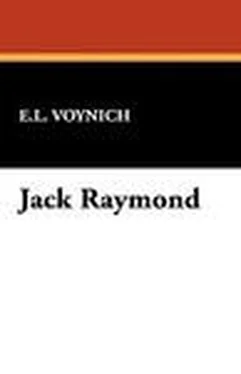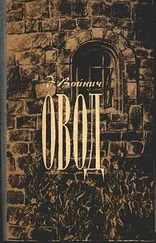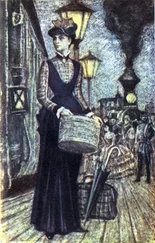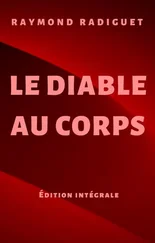Этель Лилиан Войнич - Jack Raymond
Здесь есть возможность читать онлайн «Этель Лилиан Войнич - Jack Raymond» весь текст электронной книги совершенно бесплатно (целиком полную версию без сокращений). В некоторых случаях можно слушать аудио, скачать через торрент в формате fb2 и присутствует краткое содержание. Жанр: Классическая проза, на английском языке. Описание произведения, (предисловие) а так же отзывы посетителей доступны на портале библиотеки ЛибКат.
- Название:Jack Raymond
- Автор:
- Жанр:
- Год:неизвестен
- ISBN:нет данных
- Рейтинг книги:3 / 5. Голосов: 1
-
Избранное:Добавить в избранное
- Отзывы:
-
Ваша оценка:
- 60
- 1
- 2
- 3
- 4
- 5
Jack Raymond: краткое содержание, описание и аннотация
Предлагаем к чтению аннотацию, описание, краткое содержание или предисловие (зависит от того, что написал сам автор книги «Jack Raymond»). Если вы не нашли необходимую информацию о книге — напишите в комментариях, мы постараемся отыскать её.
Jack Raymond — читать онлайн бесплатно полную книгу (весь текст) целиком
Ниже представлен текст книги, разбитый по страницам. Система сохранения места последней прочитанной страницы, позволяет с удобством читать онлайн бесплатно книгу «Jack Raymond», без необходимости каждый раз заново искать на чём Вы остановились. Поставьте закладку, и сможете в любой момент перейти на страницу, на которой закончили чтение.
Интервал:
Закладка:
Nevertheless, the grey-bird and the hot needle kept getting in the way of the Latin verses the whole afternoon, and Jack's temper grew worse and worse. His education and surroundings, the steady hardening process through which he had been put, had come near to grinding out of him whatever natural softness he might originally have possessed; and, being inordinately proud of his reputation as the most callous reprobate of the district, he was afflicted with a kind of shame every time any thing touched upon one of those little sensitive spots, of whose existence no one knew but himself. By the time the Latin was finished he was boiling over with impatience to commit some reckless enormity which should at once "pay uncle out"for the spoiled half-holiday and restore himself to his proper place in his own estimation and in that of Billy Greggs. He wiped his inky fingers on his aunt's clean tablecover, thrust them into his black thatch of hair, and racked his brains for a plan.
In the next room the Vicar was at work upon his sermon for Sunday morning. He wrote more fluently than was usual with him, and the blunt corners of his mouth were compressed into their most characteristic line. The sermon was to be a thunderbolt in Porthcarrick, a stern denunciation of Farmer Roscoe's daughter and her unknown, seducer. The girl herself and her proud, helpless old father would probably be present, for the Roscoes were regular attendants at church; but Mr. Raymond was not sensitive. He had no sympathy with what he called "her crime"; in his youth he had known something of temptation, but not of such temptation as Maggie Roscoe would have understood.
"Hi! Bill!"
Billy Greggs was poking up a fat snail with a stick; he turned round at the shout and saw Jack Raymond racing down the heather slope towards him.
"Done your Latin?"
Jack threw himself full length on the heather.
"Yes, at last."
Billy returned to the snail. For some little time Jack lay royally at ease, kicking his heels in the air like the uncouth young Philistine he was: then he sat up, pulled a knife out of his pocket, opened it with a broken and dirty finger nail and began whittling a stick to a cheerful accompaniment of "Tommy, make room for your un c le..."
"Hullo!" Billy said, after watching him a moment. "Where did that knife come from?"
"What's that to you?"
"Hold hard; let's have a look."
Jack held out the knife in a great brown fist It was an expensive-looking tool, with a malachite handle and initials engraved on a gold plate.
"Why, it's... the Bishop's! Jack!"
Jack returned the knife to his pocket with a grin.
"How did you get hold of it?"
"P'raps uncle gave it me for being such a good boy."
"Rats!"
"P'raps I took it."
Billy whistled softly.
"My eye, won't you just catch it!"
"Rather!" said Jack laconically, kicking the heather roots. Then, after a pause: "I say, Bill!"
"Well?"
"Will you swop?"
"Swop what?"
"Why, that bird — for the knife."
Billy sat bolt upright and stared, open-mouthed. The "grey-bird," a common mavis thrush, might be worth, at the most, a shilling; the knife would be worth, to the boy found guilty of stealing it...
"Why, Jack, he'll lick you into the middle of next week!"
Jack shrugged his shoulders.
"I'm not a girl, to mind a bit of a hiding, am I?"
"I say!" Billy turned over on his elbows and looked at him with interest. "You get thrashed a lot, don't you? They do say your uncle's a reg'lar old beast for caning."
"'Twon't be caning any more, so he says. He told me, the last licking I had, he'd take the horsewhip next time, and see if that 'd do me any good."
"What had you been doing?" Jack was more and more laconic "'Forget. Time before last it was for stealing pears out of the garret and shying them off the roof at the squire's old maid sister when she came to call. Just smashed her nice new bonnet."
"The pears did?"
"Only the bad ones; I ate the others, half before the licking and half after, to take the taste out of my mouth."
"You're a cool hand!"
"You don't suppose I care," said Jack, with lofty scorn.
Billy reflected. A boy who could stand unlimited "licking" without turning a hair was a creature to be approached with due respect, however ludicrous might be his preposterous innocence and his occasional fits of "softness".
"Do you really want to swop?"
" 'Course I do. Where's the bird?"
"At home. But — look here ------"
"Well?"
"Are you sure you won't..."
"Won't what?"
"Why, get me into hot water?"
Jack's big fist took him by the scruff of the neck and jerked him back on the heather.
"Now, then, none of your cheek!"
"No, I mean... if your uncle ——"
"Bill Greggs, if I swop, I swop. You take the knife, and I take the grey-bird and the hiding. Is that plain? Then stow your tot and clear out of there and fetch the bird."
"Oh, well, if you don't care, I don't." He ran back to the blacksmith's cottage. Jack lay still; kicking his hefels lazily, and ineditating on his bargain. He was not really quite so indifferent to consequences as he chose to appear. Now that there was no one to see, his forehead contracted again; at the bottom of his heart he was afraid. But his reputation as a "devil's limb" had to be kept up; and moreover, thrashings, as he reflected, are among the inevitable accidents of life, like "the act of God" that the railway companies mention in their consignment bills. You can't expect to get through boyhood without them; not, at least, if you happen to be an orphan of evil disposition, with a double dose of original sin and a pernicious resemblance to a mother who is both dead and damned; so it makes little difference just when they come. And then, to have one's eyes burnt out and be set to sing for all one's life in a little wooden cage... And after all, it would be a joke to see uncle downright furious. The theft of the Bishop's knife would probably go down in the "conduct book" with a black cross against it; uncle's memory was evidently short. Jack, for his part, needed no such artificial aids; he had many grievances against his uncle, and he remembered them every one.
Whatever else the Vicar had accomplished, he had at least taught this turbulent, difficult nature some self-control. In the Captain's life-time Jack had been a creature of impulses; had bitten and scratched when he was angry and struggled furiously when he was hurt Now he was chronically angry and well accustomed to being hurt; and had learned to set his teeth and wait for his opportunity. It generally came, sooner or later; and he did not often fail to render the offending "grown-ups" as uncomfortable as they had made him.
Billy ran back with the wretched mavis panting and fluttering in a cage of firewood hardly bigger than itself. So Jack walked home with the cage under his arm, and, slipping into the house unobserved, hid the bird in his bedroom..
After supper he said good-night, and carried his books upstairs, telling the Vicar that he had lessons to prepare for Monday's school. His room was small and low, but he liked it better than any other in the house, because it had windows facing east and west, so that he could see the sun both rise and set. When he had locked his door he took the cage from its hiding-place and set it on the western window-sill.
"All right, you little fool!" he grumbled to the terrified bird as it shrank up against the bars. "Keep your hair on! It's me hell pitch into, not you."
He put into the cage a bit of watercress which he had slipped inside his jacket at tea-time. But the mavis would only flutter desperately and beat its wings against the bars. Jack sat down on the sill beside it, turning his back to the Sunset, and considered what to do next.
Читать дальшеИнтервал:
Закладка:
Похожие книги на «Jack Raymond»
Представляем Вашему вниманию похожие книги на «Jack Raymond» списком для выбора. Мы отобрали схожую по названию и смыслу литературу в надежде предоставить читателям больше вариантов отыскать новые, интересные, ещё непрочитанные произведения.
Обсуждение, отзывы о книге «Jack Raymond» и просто собственные мнения читателей. Оставьте ваши комментарии, напишите, что Вы думаете о произведении, его смысле или главных героях. Укажите что конкретно понравилось, а что нет, и почему Вы так считаете.











